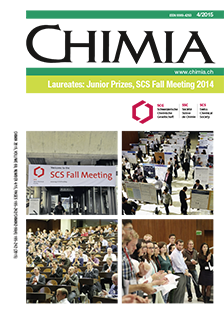A Molecular Approach to Well-defined Metal Sites Supported on Oxides with Oxidation State and Nuclearity Control
DOI:
https://doi.org/10.2533/chimia.2015.168Keywords:
Chromium, Ethylene polymerization, Molecular approach, Oxide support, Surface organometallic chemistryAbstract
A molecular understanding of the catalytically active site is essential to rationally develop metal-containing heterogeneous catalysts. The controlled grafting of molecular precursors on pre-treated supports, often referred to as surface organometallic chemistry, is an approach to prepare well-defined heterogeneous catalysts with complex organic functionalities. However, many heterogeneous catalysts do not contain organic ligands coordinated to their active sites. To model such sites, the principles of surface organometallic chemistry therefore have to be adapted. Here, we describe a method, which provides access to molecularly-defined metal sites supported on oxides, which do not contain organic functionalities and are uniform in oxidation state and nuclearity. By consecutive grafting of suitable molecular precursors and controlled thermal treatment, we prepared and characterized well-defined dinuclear Cr(II) and Cr(III) species and mononuclear Cr(III) species supported on silica. We also investigated the polymerization activity of these materials in view of the well-known ethylene polymerization catalyst based on CrOx/SiO2, the so-called Phillips catalyst. This study led to new insights on the catalytically active sites in ethylene polymerization, which are based on Cr(III), not Cr(II).
Downloads
Published
Issue
Section
License
Copyright (c) 2015 Swiss Chemical Society

This work is licensed under a Creative Commons Attribution-NonCommercial 4.0 International License.







